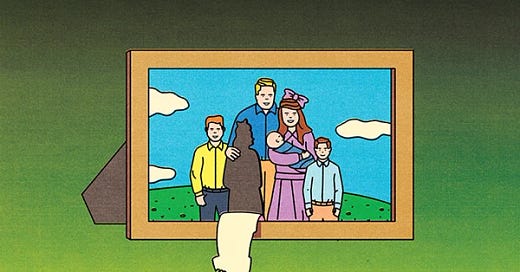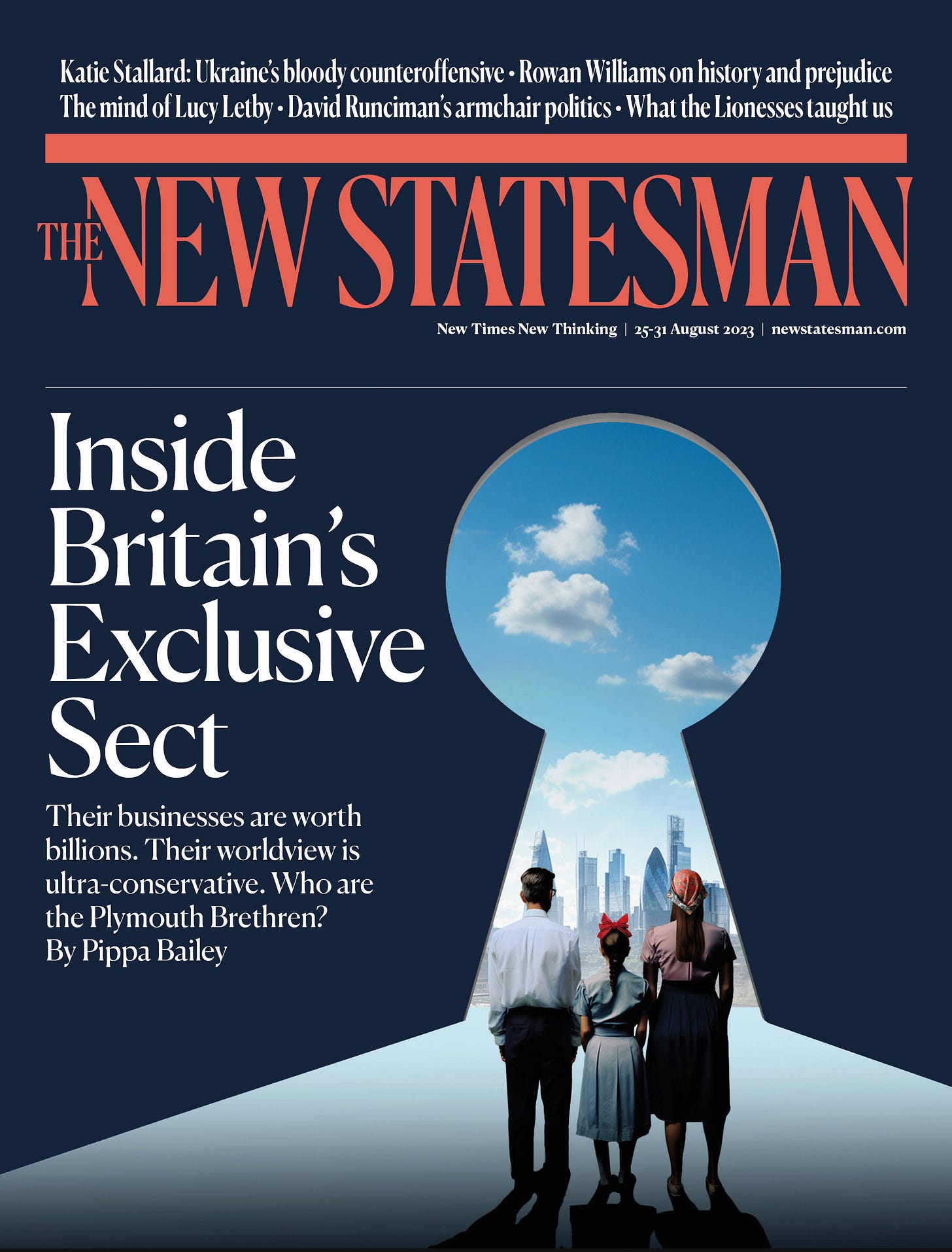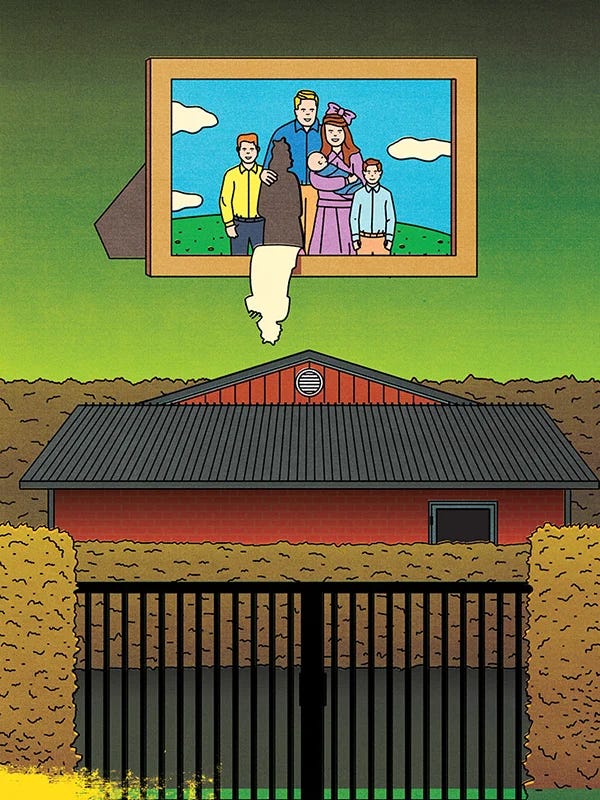The Saturday Read Feature: Escaping Eden
Inside Britain's exclusive sect.
Good afternoon. Welcome to the Saturday Read Feature. We wanted to send you our 6,800-word cover story this week, by Pippa Bailey, as it’s an exceptional read and we think you might enjoy it.
We will occasionally send you such a piece on a Wednesday afternoon instead of a Saturday Read Conversation. (If you would just like to receive the main email you can adjust your settings by clicking through to Substack.)
Pippa takes us inside the Exclusive Brethren, telling the story of their founding, their wealth, their worldview – and what happens when you leave. The piece starts below.
Abi Thompson has two birthdays. The day she was born in 1996, and the day she left the Exclusive Brethren, on 20 September 2022. The latter she describes as the “rebirth of the actual me”.
Thompson’s story is unusual: unlike most members, she wasn’t born into the Brethren (officially, the Plymouth Brethren Christian Church, or PBCC). Her mother left the sect in the mid-Nineties, married and had two children, before returning, taking her family with her. Thompson, then six, could no longer see her friends; contact with her paternal grandparents was limited to a few meetings a year.
Thompson had a difficult childhood. Problems at home meant she was often sent to live with relatives or other Brethren families. She found she didn’t fit in with the Brethren children, who viewed her as an outsider, nor with the children at her mainstream primary school in Taunton, Somerset: “I was bullied by the non-Brethren for being different,” Thompson, now 26, told me over Zoom. “But I was bullied by the Brethren even more severely, because I was an alien to them.”
As she grew older, she suppressed any doubts about the Brethren way of life. “You were taught not to trust your mind. They’d relate it to the scripture that talks about the renewing of your mind: you need to have a new mind and become a new person, and the old thoughts should go away. My thought processes were interrupted.”
In 2017, still “fully engrossed in the system”, Thompson married happily and had a child. For five years, she and her husband tried to observe the Brethren way of life, despite struggling with the social expectations and tensions over their shared business (Thompson said the couple were considered “independent thinkers”). In a final bid for guidance and support, Thompson wrote to the Brethren’s leader, 70-year-old Bruce Hales, who is based in Sydney, Australia, but never heard back. When the couple finally left last year, their isolation was complete: Thompson, already estranged from her family, was cut off from her friends; her husband’s family no longer speak to them. “We were led to believe that everything had changed, and that if we left we wouldn’t lose anyone,” Thompson said. “But it’s just as it’s always been.”
To some, life in the Brethren might seem a conservative idyll. The family unit and the raising of children are central. The divorce rate is negligible, and children live at home until they are married. Homosexuality is not permitted, nor is abortion (as is the case in many Christian denominations); most members use natural methods of contraception. Private education and healthcare are provided. The elderly are cared for at home; poverty is rare. It is unusual for women to work after marriage, and for men, well-paid employment is almost guaranteed in Brethren-run businesses. The Church provides financial assistance to young members to buy homes.
But governing all this is what the Brethren call the “doctrine of separation”. For nearly 200 years members have lived by a literal interpretation of Bible verses such as 2 Timothy 2.19 (“Let everyone who names the name of the Lord withdraw from iniquity”), dividing themselves from the perceived evil of the world. Outsiders are known as “worldlies”. At its most extreme, separation means that when a member leaves or is “withdrawn from” (excommunicated), those who remain will not eat, speak or live with them.
Family may be central, but a willingness to sever all earthly ties is a test of faith. It happened to Thompson’s family – and, many decades ago, to mine.
Click through to read Pippa’s piece in full. The piece is free to read today:
Have a good week, and catch you on Saturday for the main email. Thank you.









